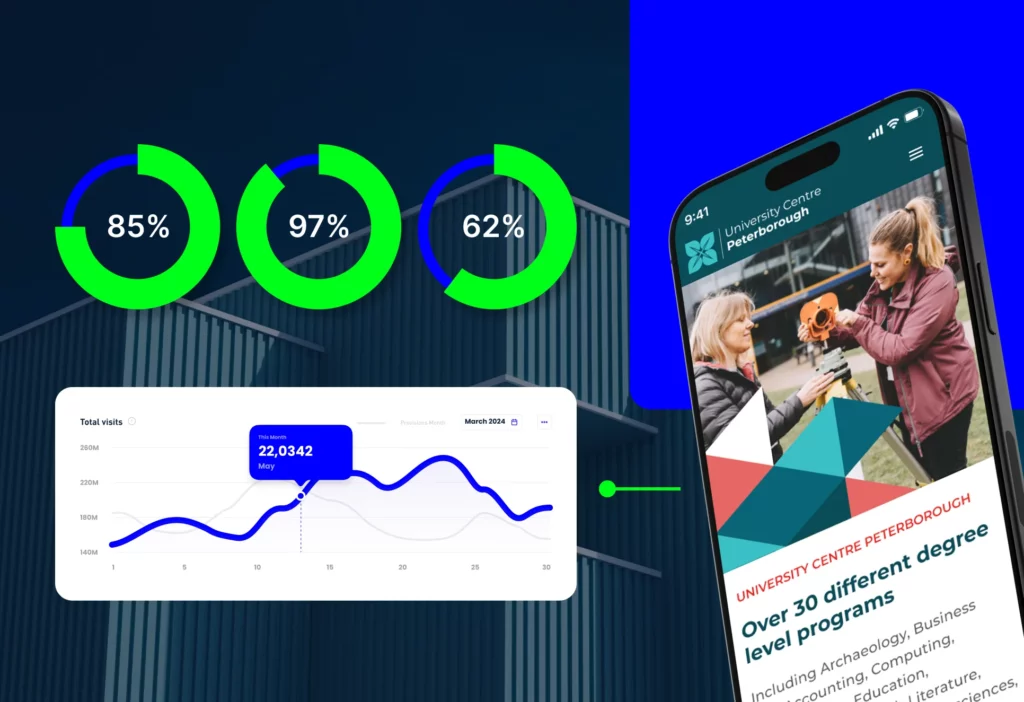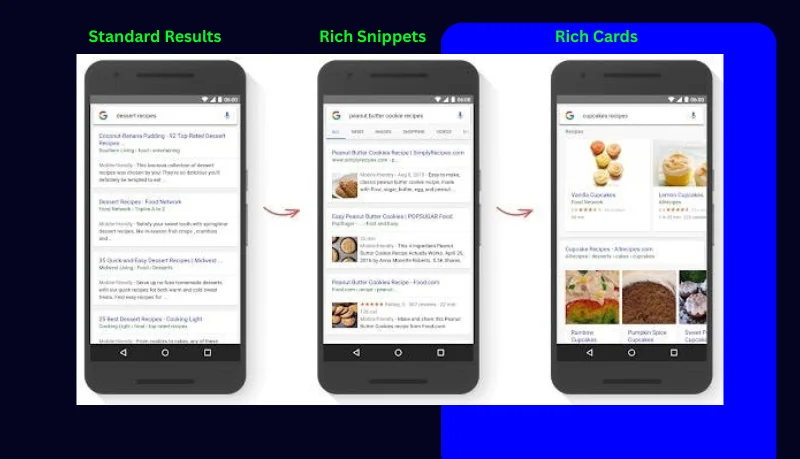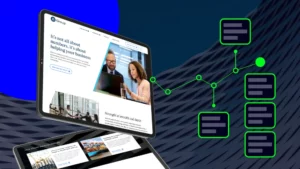How to Improve SEO on WordPress (For Enterprise Websites)
WordPress SEO is often associated with beginner-friendly plugins and blog-level tweaks. But when you’re managing an enterprise-grade site, with thousands of URLs, complex content types and multiple teams in the mix, you need to go beyond the SEO basics.

Mark Perry is a Digital Project Manager at Itineris, dedicated to fostering strong client relationships and driving success through innovative digital solutions. With a focus on clear communication and collaboration, he ensures every project aligns with client goals, delivering exceptional results and creating long-term value for all stakeholders.
At this level, you need a robust, scalable approach tailored to the way WordPress operates.
The good news is that, thanks to the open-source nature of WordPress, you’ve got endless options for customisation and control. This just means more opportunity for SEO success.
From content architecture to crawl budget control, this guide explores some impactful ways to optimise your organic presence for an enterprise WordPress site.
Of course, WordPress SEO is an enormous topic with many moving parts, so we haven’t covered everything. However, from our experience as a WordPress VIP partner, here are some (often overlooked) essentials to get the needle moving in the right direction.
Start with a Scalable Content Architecture
One of the biggest challenges for large WordPress websites is maintaining a clear and scalable content structure.
Relying on default pages and posts may work for smaller sites, but enterprise platforms need more sophisticated segmentation.
This is where custom post types (CPTs), custom taxonomies and templated archive pages come in. They allow you to group, sort and structure content in meaningful ways.
Doing this makes your site easier to navigate for both users and search engines.
Whether it’s separating service content from thought leadership, or categorising products by vertical, this kind of structure supports smarter internal linking, more targeted metadata and stronger indexation.
Take Full Control of Your Schema Markup
Structured data is important for visibility in search results, but most off-the-shelf plugins only scratch the surface.
At scale, you need complete control over how schema is applied to different content types, authors, locations and business categories.
Rather than relying solely on automated plugins, enterprise teams often inject custom JSON-LD markup directly into theme templates or use advanced ACF integrations to generate flexible, dynamic schema.
This allows for granular control over everything from article schema to local business and service details. Getting this right ensures rich results are earned consistently and accurately across your site.
Here’s an example of rich search results – something that can get your website a lot more traction:

Control Your Crawl Budget (Don’t Let WordPress Waste It)
Out of the box, WordPress is notorious for creating lots of indexable pages you don’t actually want indexed. This happens through tag archives, date-based archives, media attachment pages and so on.
For an enterprise site, this can seriously dilute your crawl budget and clutter your index with low-value pages.
Effective SEO at scale means taking full control over what gets crawled and indexed.
This involves tuning your robots.txt file, properly implementing canonical tags and using SEO plugins with advanced indexation settings that let you exclude or noindex unnecessary pages.
Your XML sitemap should only include valuable URLs that you want indexed, everything else should be left out entirely.
Take Technical Performance Seriously
Speed and stability are non-negotiable at the enterprise level. But WordPress performance can suffer from plugin overload, slow server response times and bloated page structures.
If your site loads slowly, search engines won’t rank it highly, and users won’t stick around.
To understand just how important every split second is, research shows that website users are likely to leave if it takes more than 400 milliseconds for a page to load. That’s the blink of an eye.
And with every two seconds that page load time increases, the chances of page bounces increases by 32%.
Properly optimising performance goes beyond a few plugins. It requires server-side caching, persistent object caching, image optimisation, script deferral, lazy loading and a solid CDN.
Of course, the quality of your enterprise website hosting plays a major role. The best enterprise website platforms like WordPress VIP are built for speed at scale and offer far more robust infrastructure than standard shared hosts.
You should also have monitoring tools in place to track performance metrics continuously and catch regressions early.
Automate Internal Linking (Without Losing Context)
Internal links are critical for SEO, but manually managing them across hundreds or thousands of posts is often a losing battle.
At enterprise scale, you need systems that intelligently automate contextual internal linking. Doing so means relevant content stays connected, and authority flows efficiently across your site.
This might mean creating dynamic link modules based on categories, tags or custom taxonomies. Or using editorial guidance systems that suggest internal links during the content creation process.
The goal is to ensure every piece of content contributes to a well-connected ecosystem, without relying on random plugin hacks.
Enforce SEO Governance Across Teams
Enterprise WordPress sites usually involve multiple authors, editors, developers and marketers – all with their own workflows.
Without a solid governance model, keeping up with SEO best practices on your site can quickly fall apart.
That means building SEO checks into your publishing process is essential.
Create clear editorial guidelines for metadata, headlines and internal linking. Use reusable content blocks that standardise formatting and structure. Implement tools that flag issues before content goes live — whether it’s a missing meta description or an overused tag.
You can even build inline SEO guidance directly into the CMS, so that non-technical users are nudged in the right direction as they work.
Simplify Redirect Management at Scale
Redirects are inevitable for large websites, whether from site migrations, product removals, or content cleanups. But if not managed carefully, they can lead to redirect chains, soft 404s or orphaned URLs.
Enterprise-level WordPress sites should avoid the plugin sprawl that often comes with redirect management.
Instead, they should use structured systems that integrate cleanly into the CMS, allow for batch management and provide visibility into what’s working (and what’s breaking).
Server-level redirects are still the gold standard for performance, but CMS-based tools can offer more flexibility when managed properly.
Integrate SEO Insights into Your Analytics
Finally, to improve SEO you need to measure what matters.
Enterprise websites should go beyond top-line traffic and rankings. You should be tracking SEO performance by author, post type, content category and funnel stage.
That means integrating SEO data into your broader analytics stack. Build custom reporting dashboards that help different teams see the insights relevant to them.
Editors should see what content is underperforming. Execs should see ROI. Dev teams should spot crawl errors or speed issues. The more you surface SEO insights across departments, the faster you can act on them.
A massive part of enterprise-level SEO is visibility. As long as your performance is clearly monitored, you can consistently improve website performance.
Understand the Complexities of Enterprise WordPress SEO
WordPress is a powerful platform, but it’s not automatically optimised for enterprise SEO. Even if your site is built on WordPress VIP (the most advanced version of WordPress), you’ll still need to consistently monitor and maintain your SEO presence.
This requires a combination of the right architecture, governance and performance strategy. Get this right, and you can scale your content ecosystem, drive serious organic growth and stay ahead of the competition.
Importantly, SEO, particularly for a large-scale site, is never a once-off process. It’s a constant marathon. It will deliver serious long-term value as long as you keep at it.
You need to work with a team that has the technical, strategic and creative expertise to keep your site on top.
That’s where we come in.
At Itineris, we’ve won multiple awards for our SEO and website development work with enterprise WordPress sites. We’re also one of only six agencies in the UK officially approved to work with WordPress VIP.
We take a holistic approach to SEO with all of our clients, ensuring all boxes are ticked. From technical foundations to content strategy and ongoing maintenance, we’ll keep your site soaring in the search results. After all, this is often the most rewarding investment any enterprise brand can make in their digital presence.
So, need help with your WordPress SEO? Just get in touch.




